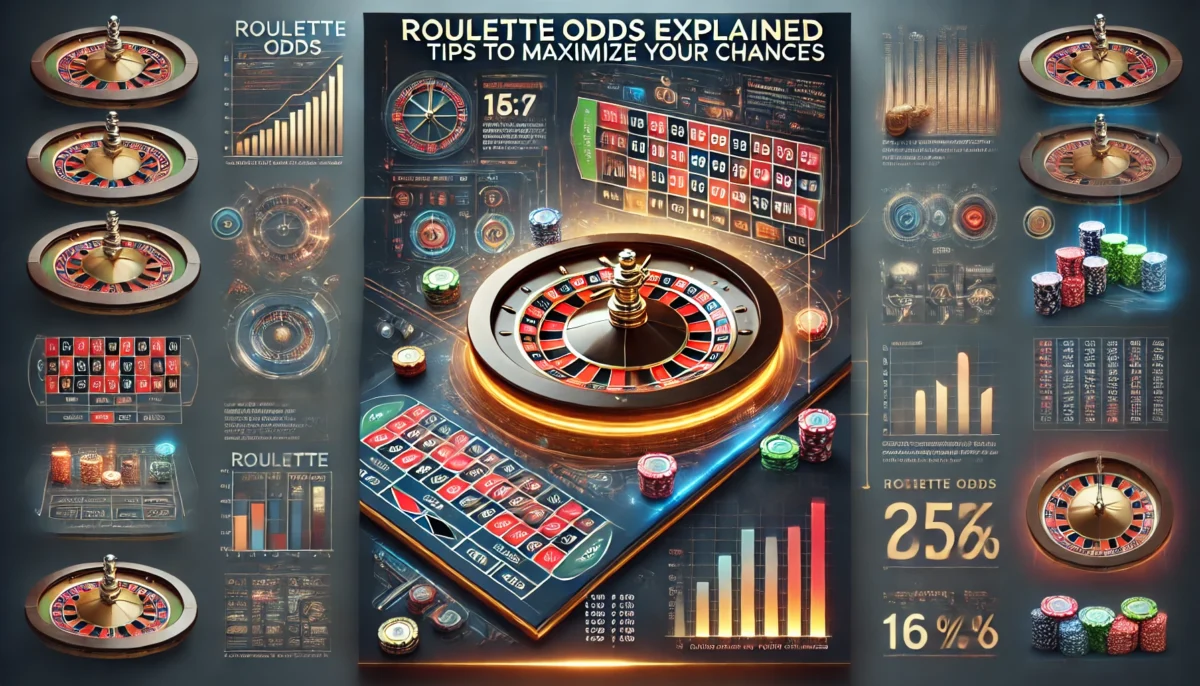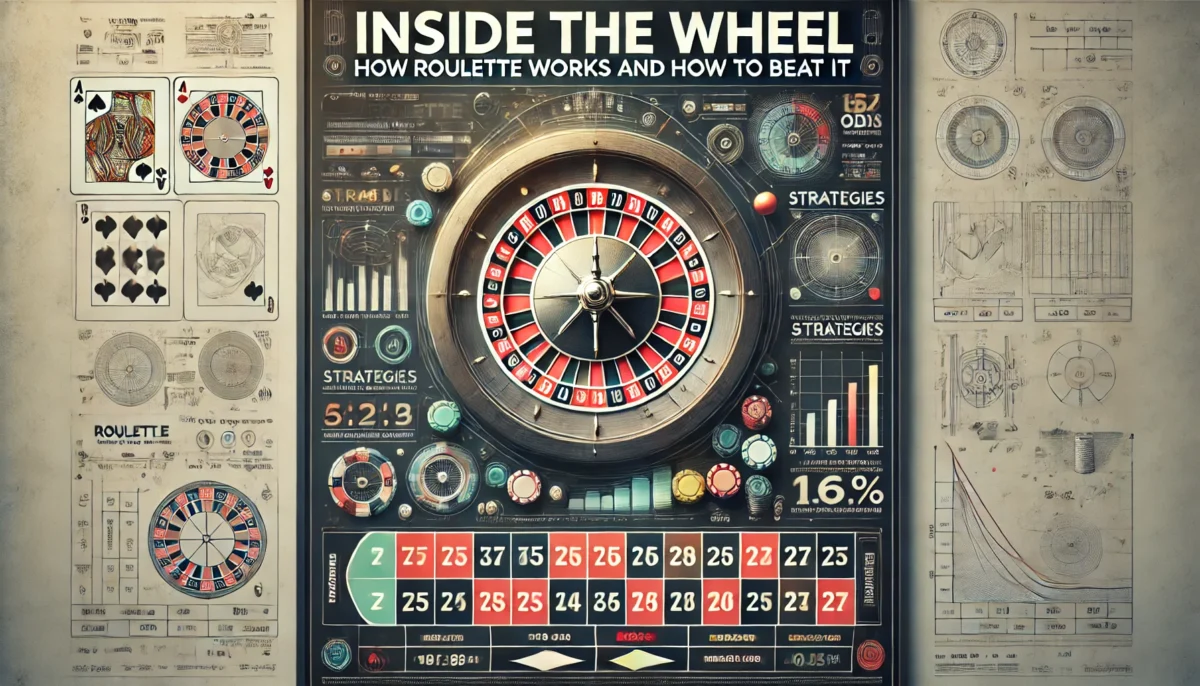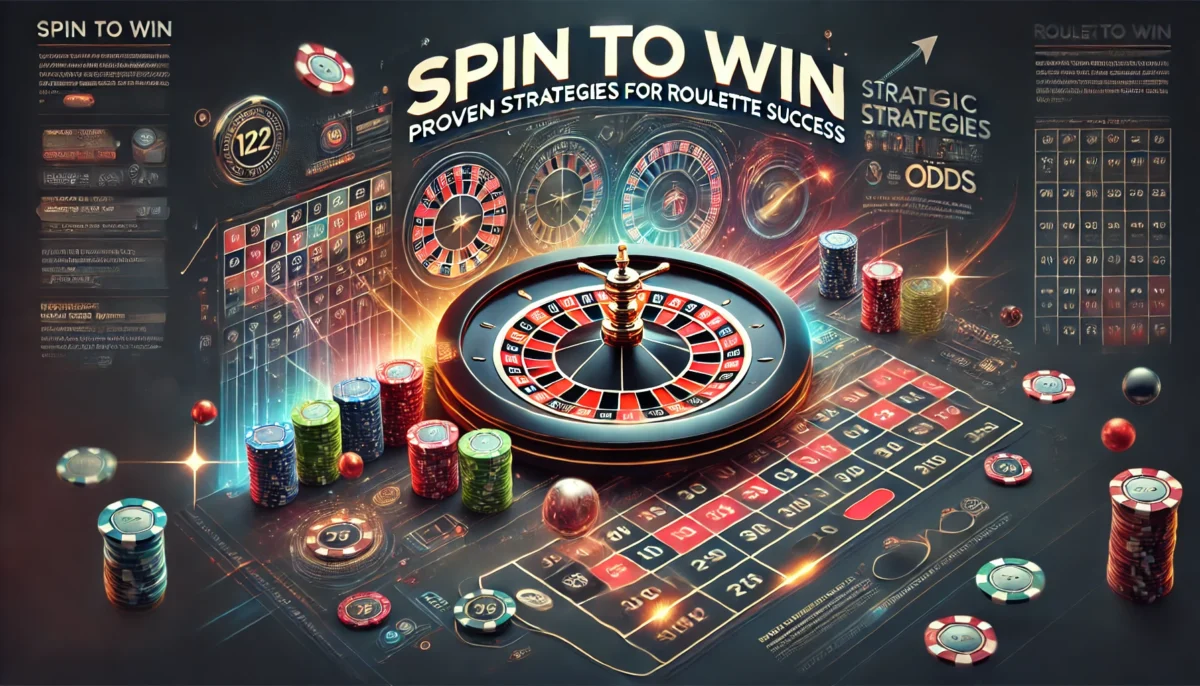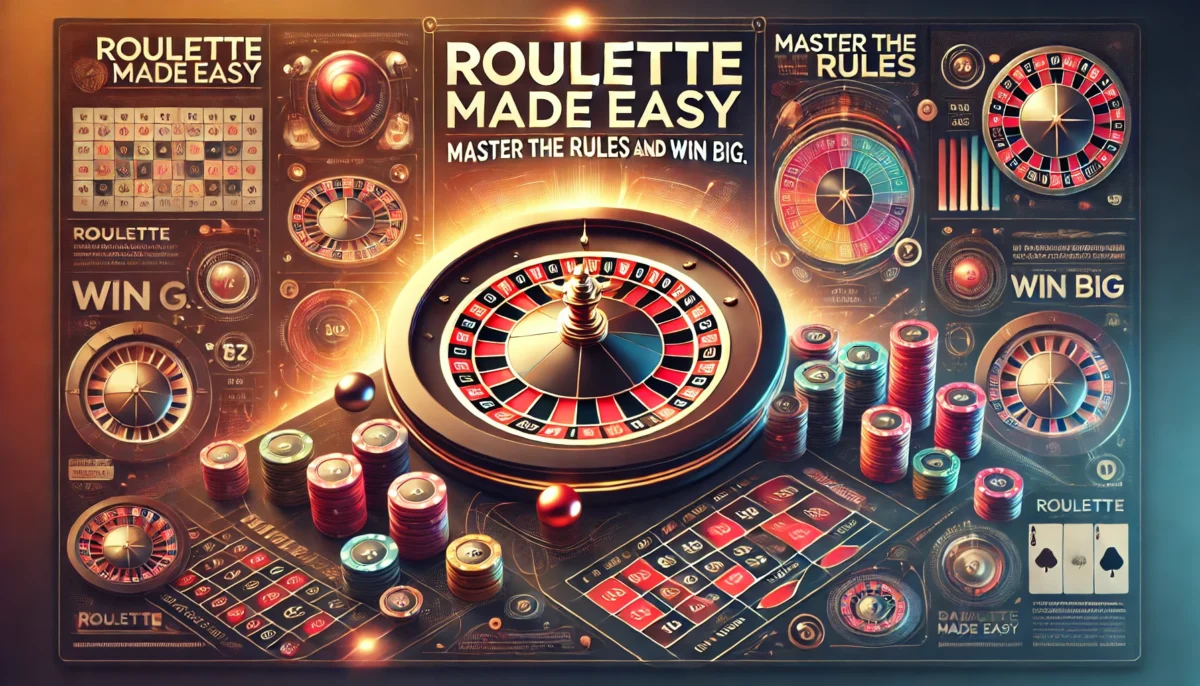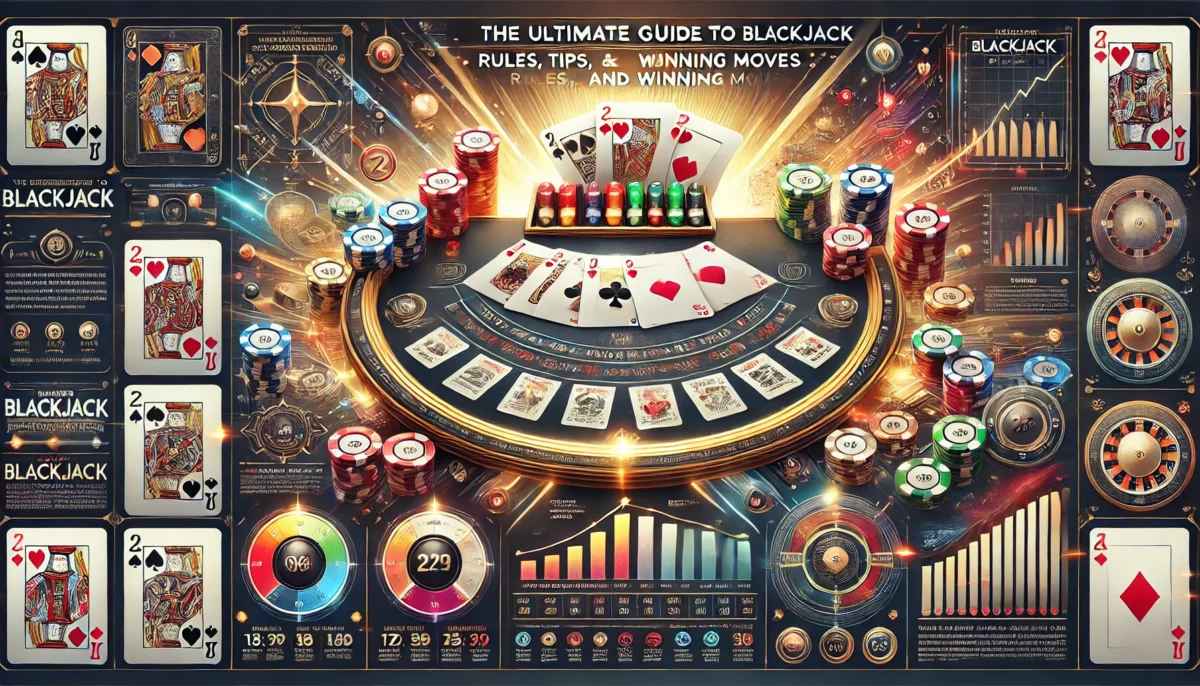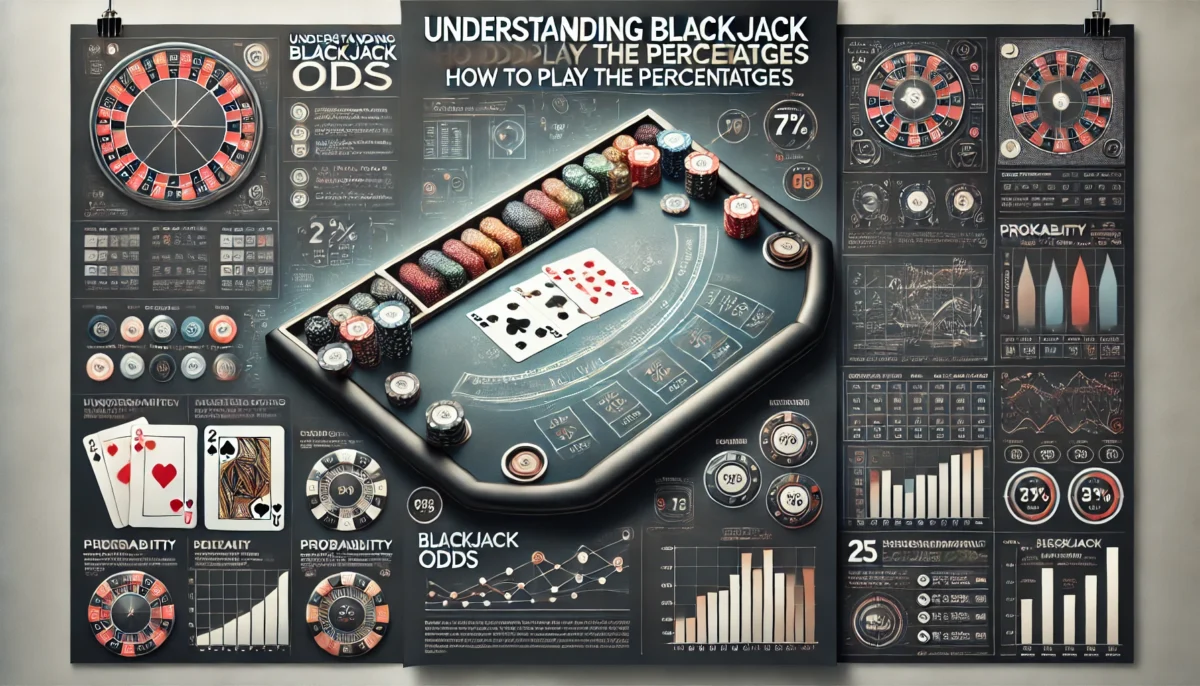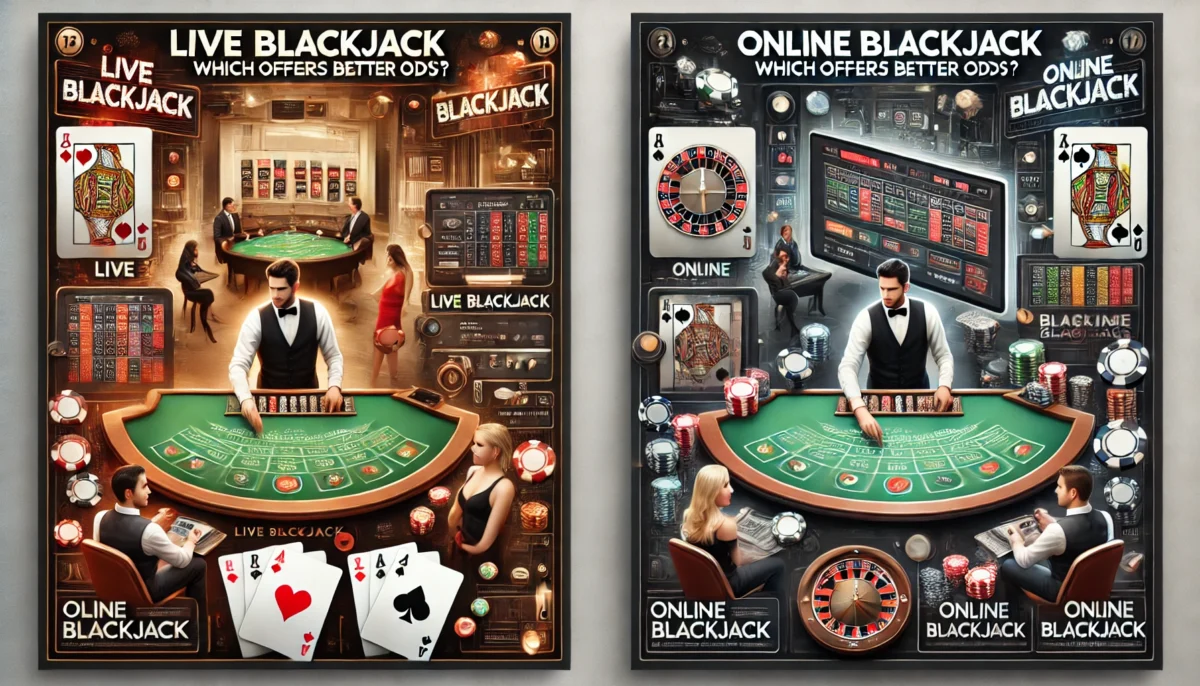Roulette, with its spinning wheel and bouncing ball, is one of the most popular casino games worldwide. Its combination of simplicity and excitement draws players of all experience levels, from casual gamblers to seasoned pros. However, while roulette is primarily a game of chance, understanding the odds and making informed bets can significantly improve your chances of success.
In this comprehensive guide, we’ll explain the odds behind roulette, discuss the different types of bets, and share actionable tips to help you make smarter choices at the table. Whether you’re playing European or American roulette, mastering the odds is the key to maximizing your winnings and enjoying a more rewarding experience.
The Basics of Roulette Odds
At its core, roulette is a game of probabilities. Each spin of the wheel is an independent event, meaning previous spins have no bearing on future outcomes. The odds of winning depend on the type of bet you place and the variant of roulette you’re playing.
European vs. American Roulette
The type of roulette you play has a significant impact on the odds due to the difference in the number of pockets on the wheel:
- European Roulette: 37 pockets (1-36 and a single zero).
- House Edge: 2.7%.
- American Roulette: 38 pockets (1-36, a single zero, and a double zero).
- House Edge: 5.26%.
Pro Tip: Always choose European roulette when possible, as the lower house edge increases your chances of winning.
Types of Bets and Their Odds
Roulette offers a variety of betting options, each with its own probability and payout. These bets are divided into two main categories: inside bets and outside bets.
Inside Bets: High Risk, High Reward
Inside bets focus on specific numbers or combinations of numbers. While the payouts are higher, the odds of winning are lower.
| Bet Type | Payout | Probability (European) | Probability (American) |
|---|---|---|---|
| Straight Up | 35:1 | 2.7% | 2.63% |
| Split | 17:1 | 5.4% | 5.26% |
| Street | 11:1 | 8.1% | 7.89% |
| Corner | 8:1 | 10.8% | 10.53% |
| Six Line | 5:1 | 16.2% | 15.79% |
Outside Bets: Lower Risk, Lower Reward
Outside bets cover broader categories of numbers, offering better odds but smaller payouts.
| Bet Type | Payout | Probability (European) | Probability (American) |
|---|---|---|---|
| Red/Black | 1:1 | 48.6% | 47.37% |
| Odd/Even | 1:1 | 48.6% | 47.37% |
| High/Low | 1:1 | 48.6% | 47.37% |
| Dozens | 2:1 | 32.4% | 31.58% |
| Columns | 2:1 | 32.4% | 31.58% |
Pro Tip: Beginners should start with outside bets for more consistent wins, while experienced players can experiment with inside bets for higher payouts.
Special Bets in Roulette
In addition to standard bets, some roulette games offer unique betting options that can influence the odds.
Call Bets (European Roulette)
These are predefined betting patterns that cover specific sections of the wheel. Examples include:
- Voisins du Zéro: Covers 17 numbers near the zero pocket.
- Tiers du Cylindre: Covers 12 numbers opposite the zero pocket.
- Orphelins: Covers the remaining 8 numbers not included in Voisins or Tiers.
Five-Number Bet (American Roulette)
This bet covers 0, 00, 1, 2, and 3. It has the worst odds in roulette, with a house edge of 7.89%. Avoid this bet whenever possible.
Strategies to Maximize Your Chances
While roulette is ultimately a game of chance, employing strategic betting can help you manage your bankroll and improve your overall experience.
1. Choose the Right Game
- Always opt for European roulette to benefit from the lower house edge.
- Avoid tables with unfavorable rules, such as 6:5 payouts on certain bets.
2. Understand the Odds
- Know the probabilities for each type of bet to make informed decisions.
- Focus on bets with higher probabilities, such as red/black or odd/even, for more consistent results.
3. Use Betting Systems
Betting systems can help structure your play, though they won’t eliminate the house edge.
- Martingale System: Double your bet after each loss to recover losses with a single win.
- Risk: A long losing streak can quickly deplete your bankroll.
- Reverse Martingale: Double your bet after each win to capitalize on streaks.
- Risk: Requires discipline to quit while ahead.
- Flat Betting: Bet the same amount on every spin.
- Risk: Slower accumulation of winnings, but minimizes losses.
4. Manage Your Bankroll
- Set a budget before you start playing and stick to it.
- Divide your bankroll into smaller units and bet no more than 5% of your total bankroll per spin.
- Walk away when you reach your win or loss limit.
5. Play Online with Bonuses
Online casinos often offer bonuses, such as free spins or cashback, which can boost your bankroll and extend your playtime.
Common Roulette Mistakes to Avoid
- Chasing Losses: Avoid increasing your bets drastically to recover losses.
- Ignoring the Odds: Understanding probabilities is essential for making smart bets.
- Betting on Too Many Numbers: Spreading your bets thin reduces potential payouts.
- Playing Without Limits: Always set win and loss limits to avoid overspending.
Online vs. Live Roulette
Advantages of Online Roulette
- Convenience: Play anytime, anywhere.
- Lower Stakes: Online tables often have lower minimum bets.
- Variety: Access to unique variants like multi-wheel or progressive roulette.
Advantages of Live Roulette
- Immersive Experience: Enjoy the sights and sounds of a real casino.
- Social Interaction: Interact with dealers and other players.
- Observation Opportunities: Spot dealer tendencies or physical wheel biases.
Final Thoughts
Roulette is a game of chance, but understanding the odds and employing strategic betting can help you make smarter decisions and maximize your chances of success. Focus on bets with favorable probabilities, manage your bankroll effectively, and choose games with player-friendly rules.
Whether you prefer the excitement of a live casino or the convenience of online play, remember that the ultimate goal is to have fun. By playing responsibly and strategically, you can enjoy the thrill of the wheel and increase your chances of hitting that big win.
